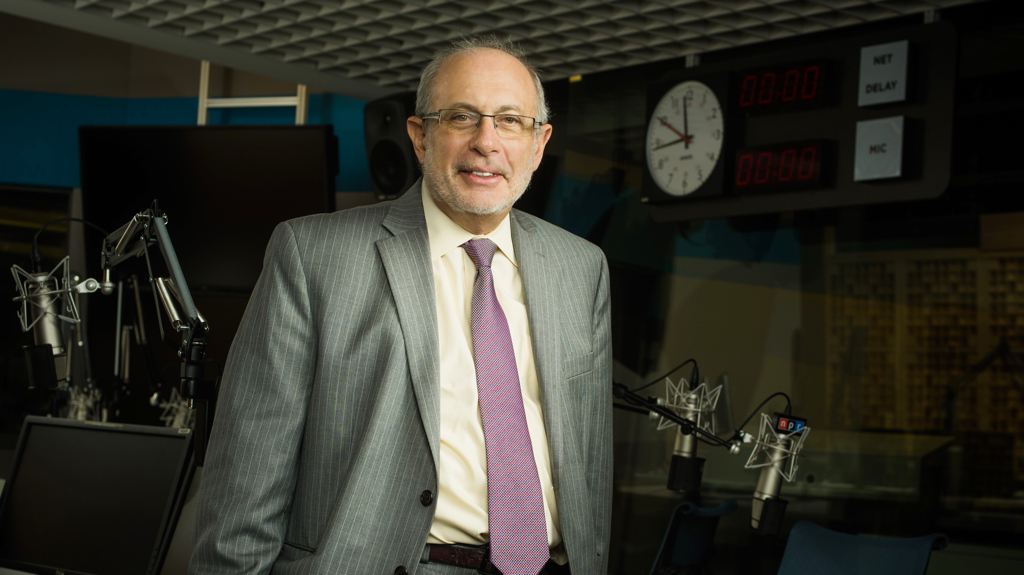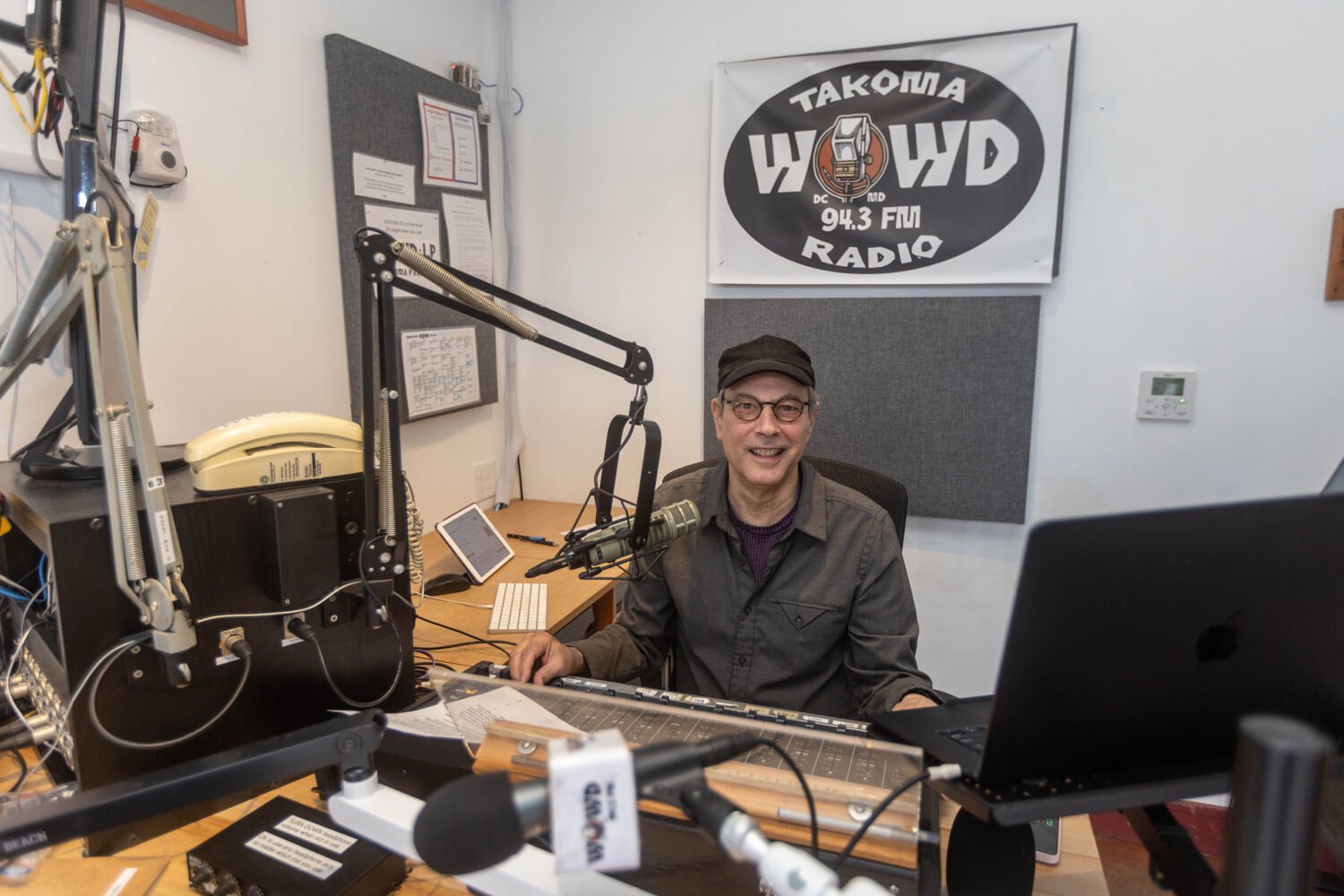Robert Siegel, who has hosted NPR’s flagship afternoon news program All Things Considered since 1987, plans to leave the program next January, the broadcaster announced Tuesday. Siegel’s stepping down will mark the end of a run at NPR that began in 1976, when he joined the then-six-year-old network as a newscaster.
Over his four-decade career at NPR, Siegel also served as an editor, the first London bureau chief, and head of NPR News. But for the past 30 years, his voice has been a constant and familiar presence on afternoon radio. As anyone who has worked with Robert can attest, he is an extraordinary reporter and an even better broadcaster.
“After 30 years in the role, he comes to work every day with ceaseless curiosity, enthusiasm, and a profound passion for the work and the medium,” reads a newsroom memo signed by NPR News editorial director Michael Oreskes, Vice President of News Programming Chris Turpin, and All Things Considered executive producer Carline Watson. “He is the consummate student, a person whose quest for the answers has benefited millions upon millions of listeners over the years. He is for all of us, a model of how to be fully engaged in the world, our work, and with his colleagues.”
The memo goes on to read that NPR will conduct a “national search”—both inside and outside of NPR roster—for Siegel’s successor at All Things Considered. Along with Siegel, the show is currently hosted by Audie Cornish, Kelly McEvers, and Ari Shapiro; Michel Martin hosts weekend installments.
Siegel’s most memorable segments as host of the afternoon broadcast include his and Mara Liasson‘s 1998 interview with then-President Bill Clinton on the day news broke about Clinton’s affair with Monica Lewinsky, his reporting from New York on September 11, 2001, and being on the ground in Chengdu, China in 2008, just before the city was struck by an 8.0-magnitude earthquake. He’s continued going on other reporting jaunts through the rest of his career, including a dispatch from Paris filed a week after the November 2015 terrorist attack that killed 130 people.
The NPR memo also reads that while Siegel “is not someone who seeks the spotlight,” the network won’t send him off without “at least a little fanfare.” Listeners should expect tributes to Siegel’s career over the next few months, including callbacks to when Siegel made light of his ever-steady news voice, like his appearance in a 2014 episode of The Simpsons, in which he oversees the demolition of Mr. Burns’s mansion, or a 2010 YouTube video in which NPR personalities covered Lady Gaga‘s “Telephone,” with Siegel deadpanning a few lyrics.
The memo does not say that Siegel is retiring, only that he will “shift his role” at NPR. “This is a decision long in the making and not an easy one. I’ve had the greatest job I can think of, working with the finest colleagues anyone could ask for, for as long a stretch as I could imagine,” Siegel says in the memo. “But, looking ahead to my seventies (which start all too soon) I feel that it is time for me to begin a new phase of life. Over the next few months, I hope to figure out what that will be.”
Read Oreskes’s, Turpin’s, and Watson’s full memo:
Robert Siegel‘s voice and signature reporting have been an essential part of NPR since he first arrived in Washington in 1976. He has been with NPR for more than 40 years, a constant presence in our newsroom and a familiar voice to so many listeners. After one of the most storied careers in NPR’s history, Robert has decided to step down as the host of All Things Considered in January 2018.
“This is a decision long in the making and not an easy one. I’ve had the greatest job I can think of, working with the finest colleagues anyone could ask for, for as long a stretch as I could imagine,” Robert says. “But, looking ahead to my seventies (which start all too soon) I feel that it is time for me to begin a new phase of life. Over the next few months, I hope to figure out what that will be.”
As anyone who has worked with Robert can attest, he is an extraordinary reporter and an even better broadcaster. After 30 years in the role, he comes to work every day with ceaseless curiosity, enthusiasm, and a profound passion for the work and the medium. He is the consummate student, a person whose quest for the answers has benefited millions upon millions of listeners over the years. He is for all of us, a model of how to be fully engaged in the world, our work, and with his colleagues.
Robert has spent his life in radio, getting his start as a freshman in college. Over his four decades with NPR – he has seen the news, and the newsroom, from many different angles. He joined NPR as a newscaster, moved into an editor role, opened NPR’s London bureau, and as chief of NPR News ran the newsroom. And he accomplished all this before he took over at All Things Considered in 1987. As an ATC host, Robert reported from every corner of the country and around the world. His reporting from Paris after the attacks in 2015 and his reflections about returning to a city he knows so well made a beautiful and heartfelt Reporter’s Postcard on how the city was coping.
Over his career, Robert has had an unerring knack for being where news happens. In 2008, he was part of the ATC team in Chengdu, China, when a massive earthquake hit. On the day that the Monica Lewinsky scandal broke, it was Robert and Mara Liasson who just so happened to be interviewing President Clinton. And on September 11, 2001, he was in New York, where he guided our audience through some of the most difficult news this country has faced. In one essay he reflected on the paper memories that fell from the sky that day.
Of course, there have been many lighter moments as well, including rare interviews that have broken through Robert’s professional calm to unleash one of the world’s best laughs. His sense of humor is unmatched, as is his willingness to make light of himself. The homages to Robert even include cameos on the Simpsons.
Robert is not someone who seeks the spotlight. But we can’t let him shift his role without at least a little fanfare inside NPR and with listeners. We’ll be planning ways to celebrate and thank Robert for all his contributions at ATC in the coming months.
He’s giving us plenty of notice, and we’re grateful for that. Finding his successor will not be easy. We will conduct a national search – looking inside NPR and across the media landscape – for the next voice of All Things Considered.




















